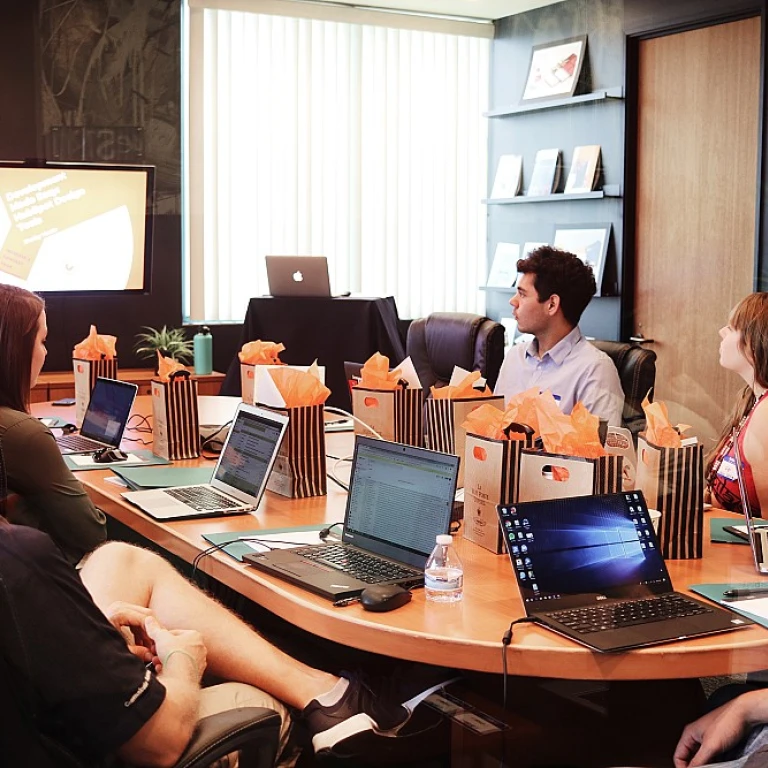
The Importance of Tier 2 IT Support in MSPs
The Central Role of Tier 2 IT Support
In the landscape of Managed Service Providers (MSPs), the Tier 2 IT Support team forms a crucial pillar of the technical ecosystem. Their significance lies in handling a variety of issues that move beyond the basic resolutions typically managed at the Tier 1 level. As a pivotal support tier, Tier 2 IT personnel are equipped to address complex issues that require a deeper understanding and more specialized experience.
The value of this support level is evident through its impact on customer satisfaction. By efficiently managing a diverse range of problems, from technical glitches to intricate system dilemmas, Tier 2 support agents ensure customer experience is both seamless and reliable. This tier of support acts as a bridge between entry-level help desk services and the more advanced, specialized assistance provided by Tier 3.
Moreover, Tier 2 teams contribute significantly to efficient service management within MSPs by streamlining the resolution process. This not only expedites customer resolutions but also enhances overall support system effectiveness. Well-managed Tier 2 services can drastically reduce the number of escalations to higher tiers, thus making the entire support tier system more effective and well-integrated.
For an in-depth look into how these teams fit into the broader MSP landscape, consider exploring strategies and dynamics in HR staffing within MSPs.
Key Skills Required for Tier 2 IT Support
Essential Skills for Success in Tier 2 IT Support
In the world of IT managed service providers (MSPs), the Tier 2 support team plays a pivotal role in ensuring efficient resolution of technical issues that require more advanced troubleshooting than what Tier 1 can typically handle. To excel in this environment, professionals in Tier 2 IT support require a unique blend of skills that enable them to address complex issues effectively while ensuring a positive customer experience.
Here are a few key skills vital for Tier 2 IT support:
- Technical Proficiency: A deep understanding of the systems, software, and technologies involved is essential. Tier 2 support agents need to have the technical background to tackle complex issues and deliver effective solutions.
- Analytical Thinking: The ability to analyze issues, assess potential solutions, and apply logical thinking is critical in diagnosing and solving more sophisticated problems.
- Customer Service: Interpersonal skills are crucial for managing customer expectations and ensuring satisfaction. Tier 2 support teams must effectively communicate technical solutions in an understandable manner.
- Problem-Solving: Tier 2 IT support relies heavily on creative problem-solving abilities to quickly and efficiently resolve issues that other support tiers cannot.
- Experience with Support Tickets: A solid grasp of help desk management tools and practices enables Tier 2 agents to track, prioritize, and manage issues efficiently.
Moreover, effective collaboration and communication within the support team can greatly enhance the Tier 2 support functions. This cross-team synergy helps in escalating issues appropriately and sharing knowledge for faster resolution, ultimately improving the overall efficiency of the MSP. For further insight into MSP staffing solutions, consider exploring additional expert resources.
Challenges Faced by Tier 2 IT Support Teams
Overcoming Obstacles in Tier 2 IT Support
Tier 2 IT support teams in Managed Service Providers (MSPs) play a crucial role in resolving more complex issues that require a deeper technical understanding than what Tier 1 support can offer. However, these teams often face unique challenges that can impact the efficiency of their service delivery.
One of the primary challenges is managing the varying complexities of technical issues that come their way. Tier 2 support must handle escalations from the help desk or Tier 1, often with limited prior context, which requires a robust problem-solving ability and a flexible approach to technical queries.
Another hurdle is maintaining customer satisfaction while dealing with inherent delays that come with diagnosing and resolving intricate problems. Tier 2 support agents must balance the technical demands of fixing issues with the customer service expectations of minimizing downtime for clients.
Additionally, tier support teams often struggle with adequate staffing and resource allocation. As the volume of issues increases, so does the pressure on the support level tiers to deliver timely resolutions. Effective management of this challenge is critical, as it involves strategic planning and efficient use of available support tiers.
Technology also poses a challenge. As software and systems evolve, Tier 2 tech support must continuously update their knowledge and experience to address new issues that arise. This needs ongoing training and resources, which can be a logistical and financial strain on MSPs.
Furthermore, the role and challenges of a service desk manager in such environments can affect this tier when managerial strategies don't align with the technical demands or communication protocols.
Effective Strategies for MSPs to Optimize Tier 2 IT Support
Boosting Efficiency with Proven Practices
To optimize the performance of Tier 2 IT support in Managed Service Providers (MSPs), it's crucial to implement strategies that enhance both team dynamics and service delivery. MSPs often rely on efficient Tier 2 systems for resolving complex issues that Tier 1 cannot handle.- Leverage Advanced Technical Software: Utilizing the latest management software can help support teams manage and track complex issues effectively. These tools also aid in prioritizing customer service requests and distributing workload evenly among agents.
- Continuous Training and Development: To maintain a high level of technical support, continuous training is essential. This not only sharpens skills but also keeps the team updated with the latest technological advancements.
- Effective Resource Allocation: Allocating resources efficiently ensures every issue is addressed within the right tier. This involves distinguishing between problems that require Tier 1 desk support and those needing the expertise of Tier 2 tech support agents.
- Streamlined Communication Channels: Streamlining communication within the support team enhances the resolution process. A clear flow of information, complemented by accessible help desk systems, ensures issues are escalated appropriately and customer satisfaction is achieved.
- Performance Monitoring and Feedback: Regularly monitoring the performance of the support team and providing constructive feedback promotes continuous improvement. This can help in identifying potential areas for enhancement and innovation.













